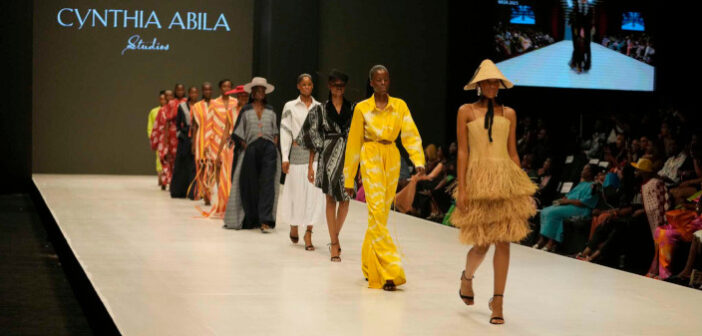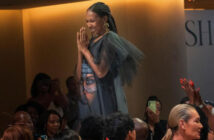The runway in Lagos, Nigeria, is more crowded than before.
In response to domestic and global demand, Africa’s fashion sector is expanding quickly, according to a UNESCO report that was made public at Lagos Fashion Week.
However, it also lacks the necessary investment to reach its maximum potential.
According to the United Nations cultural authority, the continent’s fashion industry might triple its earnings over the next ten years with the correct infrastructure and investment. Currently, the industry’s annual export value is estimated at $15.5 billion.
According to fashion designer Ejiro Amos-Tafiri, “people are starting to realise that there is a lot of treasure in the Nigerian culture and particularly in the fashion industry.”
Fashion is still expanding throughout the continent in a number of ways, including through motion pictures and television. It includes high-end fabrics, clothing, accessories, and handcrafted goods, all of which have a long history and are emblematic of African culture.
“We are very social people. We have such a joie de vivre nature and such a bold personality. So, with all of this, the fashion had to be right there to support and to be part of that growth,” according to Amos-Tafiri.
The UNESCO report highlights that the expansion of e-commerce is another factor driving demand for African fashion labels.
The U.S. International Trade Administration states that mobile device online traffic is most prevalent in Africa.
As a result, there are now more marketing options available. In Nigeria, for example, young people are progressively launching fashion brands on social media.
Among them is Ozinna Anumudu.
She launched ozinna.com, her online fashion boutique.
“The growth rate of the Nigerian fashion industry in the last 10 years has been quite exponential. Social media has played a big role in this. For example, now, from a click, we have women shopping in Australia, shopping in France, and these are women who never necessarily had access to Nigerian clothing, but literally is now a click away thanks to social media,” she says.
Exhibiting a diverse range of designers from over the continent, the yearly fashion show honours and facilitates the promotion of regional businesses. It mostly showcases African crafts in a range of hues and designs.
“We believe that we’re there (at the level of Western brands) in terms of design and style,” says Anumudu.
“We’re just not there yet in terms of production and serving the world economy as a whole because of production issues and financial capital issues as well. I feel like the future for the Nigerian fashion industry is just coming at par with contemporaries around the world.”




